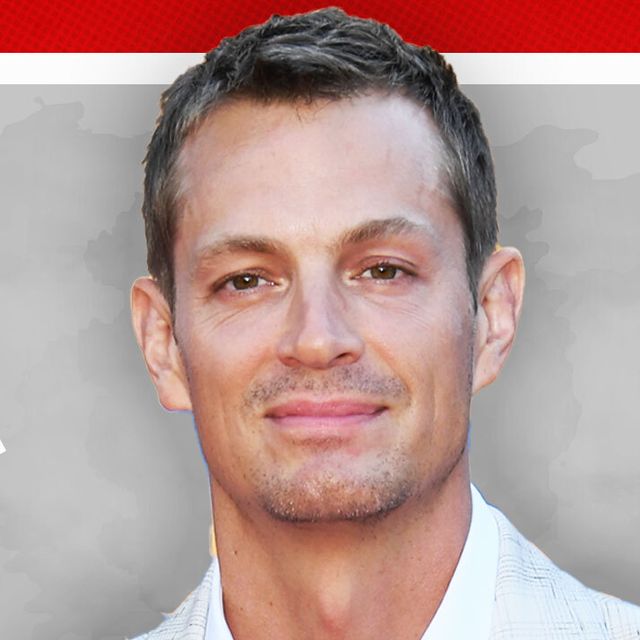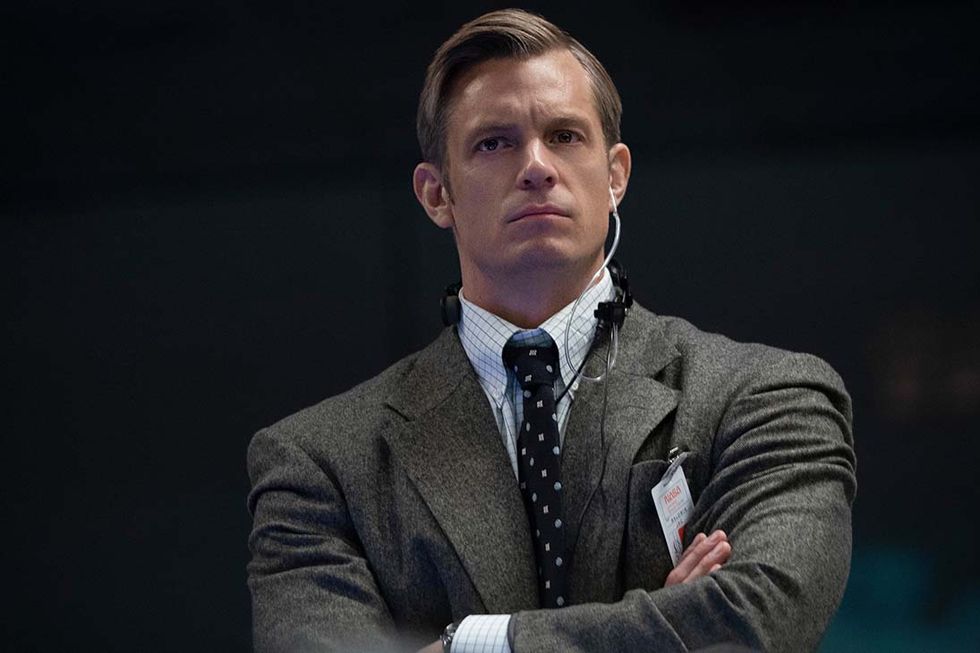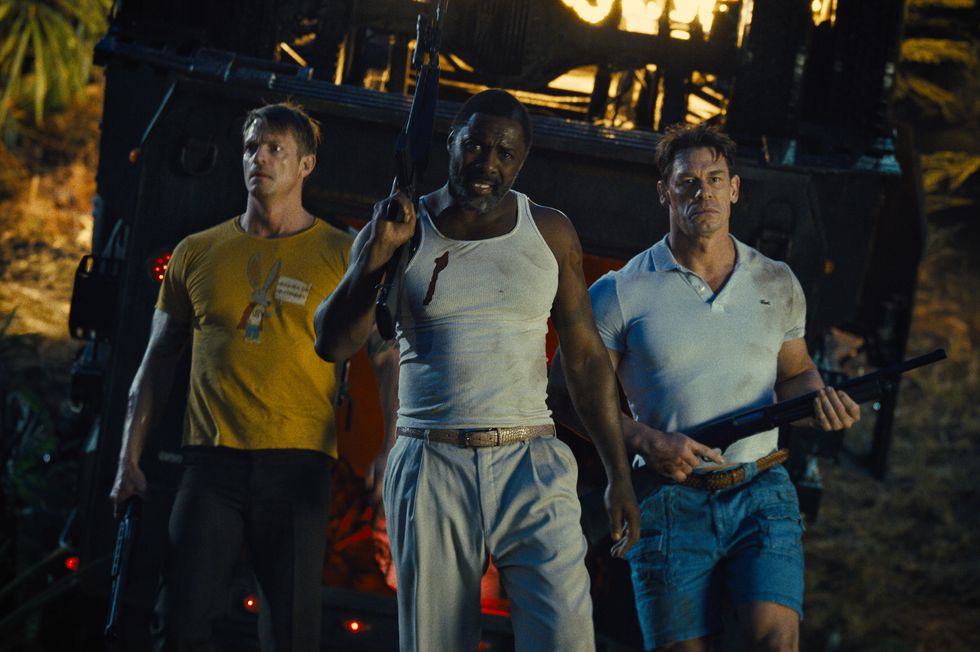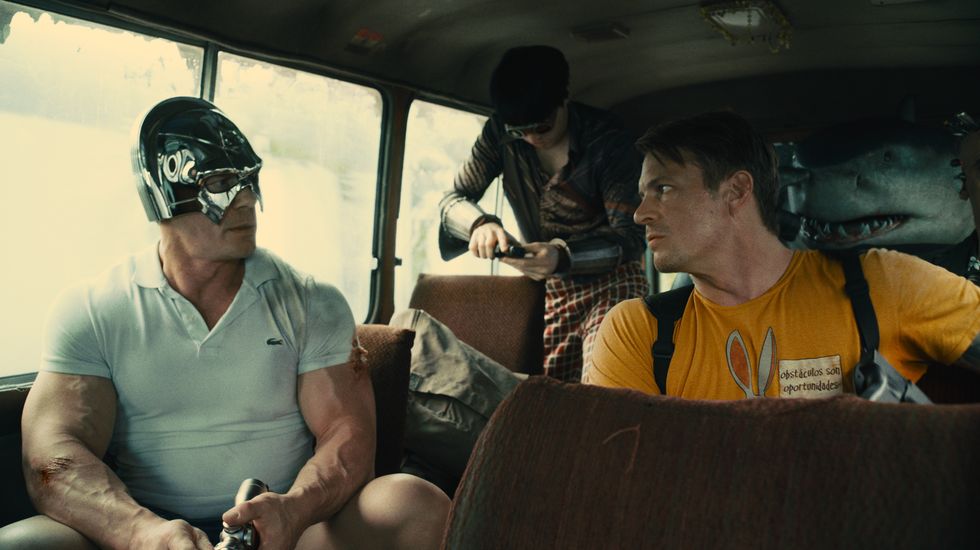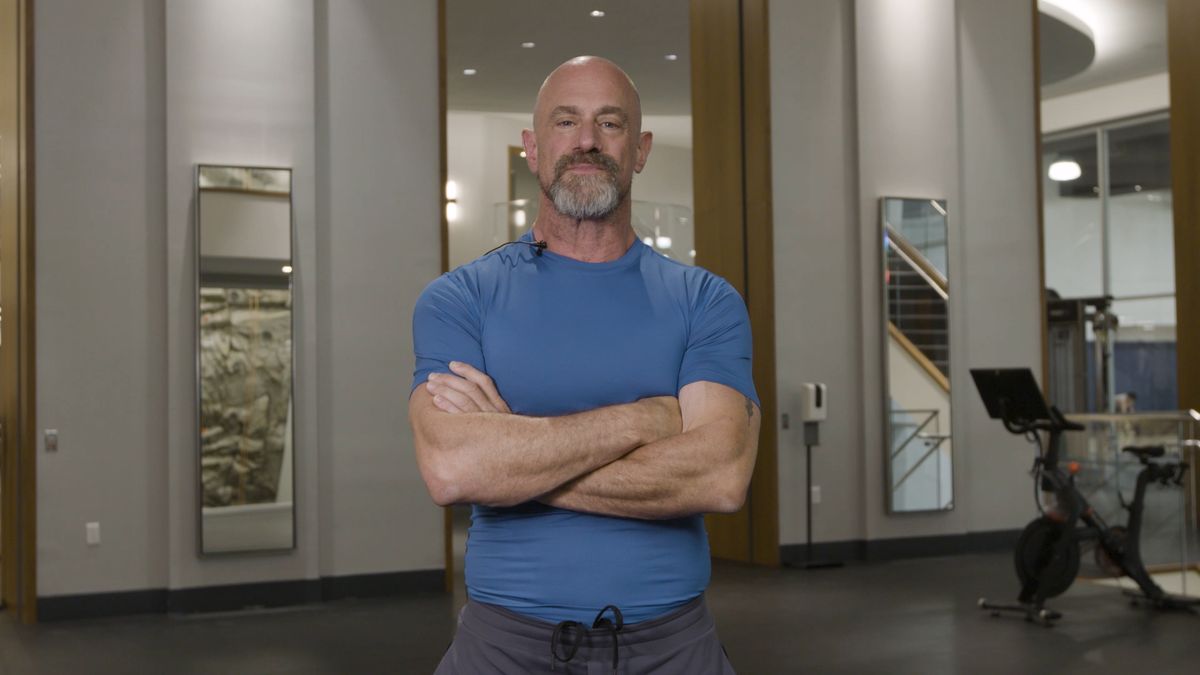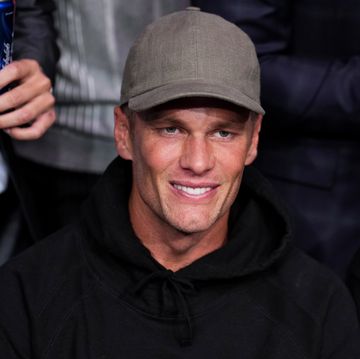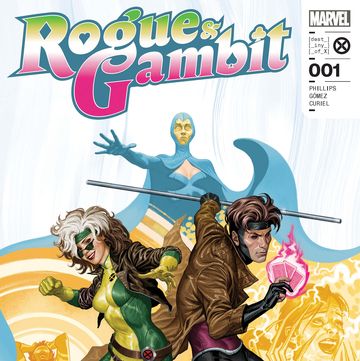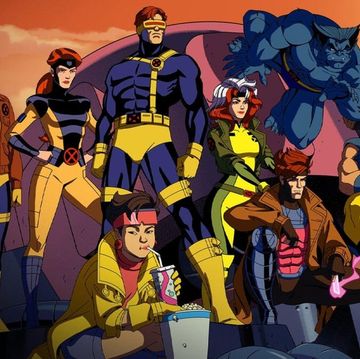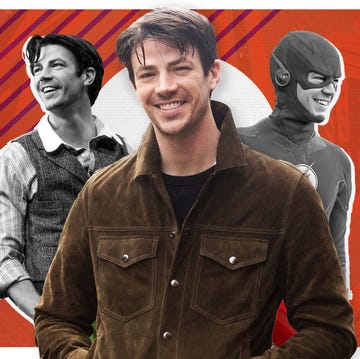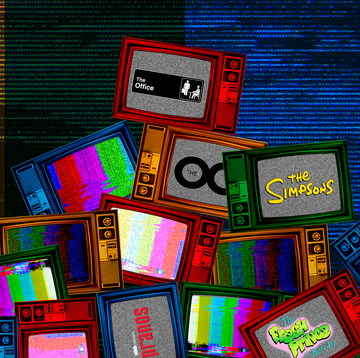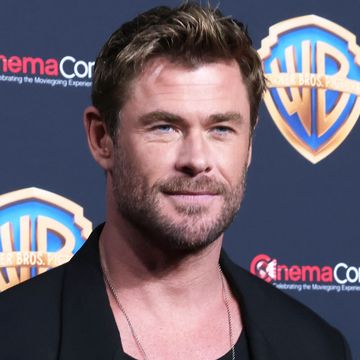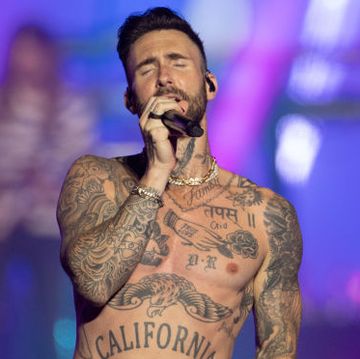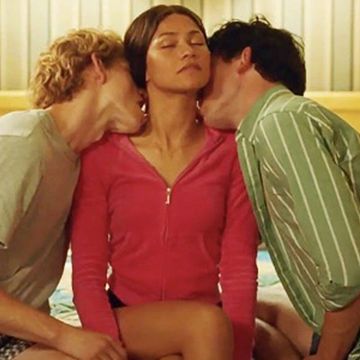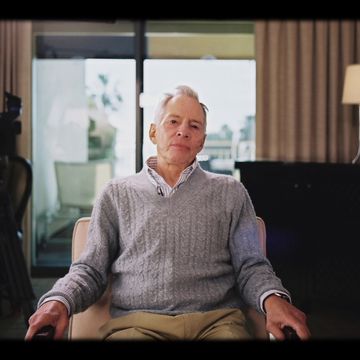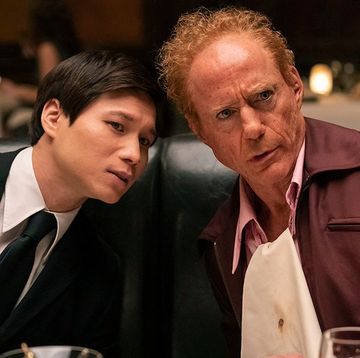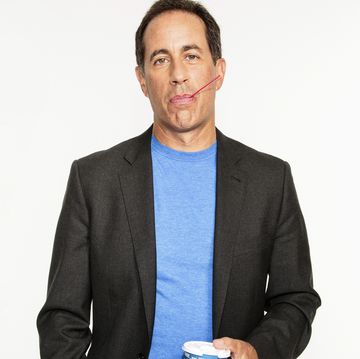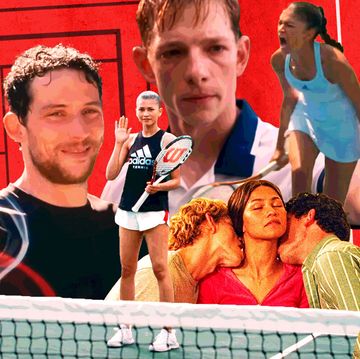Born and raised in Sweden to an American father and a Swedish mother, Joel Kinnaman considers himself a citizen of the world, and it’s easy to see why. “My dad had a bit of an original journey to Sweden,” he tells Men’s Health. Kinnaman’s father was a deserter during the Vietnam war, who sought asylum in Sweden; after celebrating a wedding in Laos with a friend on leave, he says his father came back a changed man. “He couldn’t understand how and why he was supposed to kill them.” So he left it all behind, eventually landing in Sweden, where he met Kinnaman’s mother, who was also in the anti-war movement in the country. “The rest is history,” he says.
Kinnaman says he’s proud of his dad for making that decision all those years ago, even though he himself has chosen to build a life here in the U.S.
“I love America,” he says. “There is no other country in the world that has so much contrast, both in opinions and culture. That's also why it's such a mess. But it is also a beautiful mess. And I think I've made my dad realize that as well, and I think it's helped him reconnect with his American identity as well.” He speaks lovingly about his home country as well, where recently he and his extended family have been renovating a small group of homes in the archipelago–a kind of private village for him and his loved ones to retreat to.
Kinnaman jettisoned to fame in the US with the release of AMC’s The Killing, a gritty crime drama based on a Danish show by the same name. But back in his native Sweden, he was already a household name. In the years since, he's appeared in movies like the Robocop reboot (in the titular role) and in shows such as House of Cards, Altered Carbon, and most recently, Apple TV+'s For All Mankind and HBO's In Treatment. This week, he hits the big screen as Rick Flag in The Suicide Squad, where he plays the military leader at the helm of the film’s gang of misfit bad guy vigilantes (a role he also played in 2016's Suicide Squad).
Joining me via Zoom from L.A., Kinnaman has all of the looks and charm of an old Hollywood actor; a chiseled face with sandy blonde hair and a deep voice with a slight but noticeable Swedish accent. But he’s relaxed and disarming–chill even, every bit the model of a modern cool guy in a red t-shirt with short sleeves that reveal intricate tattoos on both biceps. Before we hang up he introduces me to his dog, Zoe, who he proudly boasts is an “absolute mutt.”
We spoke for nearly an hour about everything from colorful childhood in Sweden, to his passion for acting, and what it was like to act shirtless next to John Cena.
Tell me a little bit about your childhood growing up in Sweden.
My whole group of friends that I had when I was younger went on to become, more or less, very varying degrees of successful criminals. I think I was never really on that path. I was flirting with that life a lot, and getting into trouble with the police quite often, but I think I was also saved by the fact that, in that group of friends, it was all very bad friendships. It was not like this band of brothers that had each other's back.
So I was in trouble for a few years. And then I woke up from it. And it very much had to do with how shitty these friendships were. But it was a difficult time when I broke up with this gang. They wouldn't really let me move on. It was a couple of very lonely years after that, because when I hung out with new friends and I ran into my old friends, they would rob and harass and beat up my new friends.
So if I made new friends, they'd be like, "Look, Joel, we like you, but we don't want to get robbed or beat up just because we're friends with you." Then after a couple of years, things settled down and I found a new group of friends, and I changed schools. That group of friends was very interested in theater and film. My sister was an actor, too. And that's where my first real interest in acting started to pique again... even though it took me a couple of years to actually muster the courage to give it a try myself for real.
And so that was what set you on the path for theater and where you are now.
I made a decision to give it a try, and apply for the National Theatre School, which is very difficult to get into. And I had this idea that I'm going to apply and then the process of that is going to show me if this is something that I want to do, or that I should do. And at first it was very stale and difficult, and then I had this one breakthrough moment that I'll never forget.
It was one of my seminal moments. I was working on this monologue from Long Day's Journey Into Night by Eugene O'Neill, and it's the scene where he finally confronts his father with all of his shortcomings and his stinginess. And it was just something that connected with things that I was angry with my dad over, and then all of a sudden, this wave of emotion just came over me, and the words just came out in a completely different, what felt like much more natural way. And then they just flowed out of me, and all this emotion that was bottled up in me just came out through this text. And when I was done, I was sitting there panting, and then this actor that I was working with—a famous Swedish actor—he was also quiet for quite a long time, and then he told me: "Okay, Joel, if you would like, then acting can be your profession in life. It's a long road and you're going to work really hard, but you can do this. You have the talent." And then I understood that that was the first time that I had experienced flow in a text. And after that experience, I became obsessed with it. And I became obsessed with experiencing that again, because it was such a high. And I became a fiend.
Are there any moments playing Rick Flag that feel like that for you?
I had several moments while we were shooting The Suicide Squad, especially right in the beginning of the third act, Flagg makes this discovery, and has this huge disappointment, and I don't want to spoil anything, but he becomes very disillusioned, and I started to repeat this phrase, and [Director] James [Gunn] acknowledged where I was going, and he told me, "Again. Again."
And I kept repeating it until I broke through, and I started crying and... It's so amazing to work with a director that has that eye for you. That they also can feel where you're at, and help you push along the way.
What was that like, working with James Gunn?
It's definitely one of the great experiences of my career. He is such a great director on all levels. And he could really sense where I was at on an emotional level, and pushed me over the edge when there were those deeper emotions. But then also it was such a joy working with him on the comedic side of things, where I don't have that much experience.
And it was really fun. I really enjoyed it, and yeah, he's such a great coach and a friend. He's really the whole package in that sense, because he has such a clear vision of the whole project, but then he also creates an incredibly warm and hospitable environment on set. It's really a family environment and he makes it fun and easy and you don't feel any of the pressures of a big production.
Was there anything that you did mentally to get yourself back in the headspace of Rick Flag?
So this film, this script, is so different from the first film. So one of the first conversations that I had with James, we just decided that I'm not going to be so bound by what I did in the first film. I'm just going to let Flag in this version just be what it needs to be. So I just allowed myself to reinvent the character. This is a much looser, warmer, more comedic version of Flag. And I really enjoyed playing him this way. It opened up for so many more possibilities and more relationships with the other characters.
How did you prepare physically for the film?
I made this huge error of judgment in this film where I was like, "This is the movie where I'm going to really show off my physique." And then I talked to James—I went full Matthew McConaughey—and I was like, "I think this is a great opportunity for me to take my shirt off." So I had this scene where I was going to take my shirt off, I had been injured.
But ‘Dummy Joel’ didn't take the time to really read through the whole script and think about it, because John Cena takes his shirt off two pages later in the script. So all that effort that I put in? Just absolutely gone to waste. And then also, he's running around in tighty-whities with one of the biggest penises that's ever been shown on screen. It looks like he had a baby in his tighty-whities. He just gave birth to Little John, and he's running around with Little John in his tighty-whities, two minutes after I take my shirt off. So what was the point? There was no point.
Sure, I could talk to you about it, about the process of me getting into shape, but it's completely pointless because no one is ever going to think or pay any attention to that whatsoever. It's going to be erased from everyone's mind when they ... As long as they don't stop watching the movie right there. That's the only chance where I would get any attention for it. If they watch two more minutes, it's gone. Wiped. Erased from everyone's memory.
Don’t undersell yourself! I know a lot of guys would love to know how Joel Kinnaman gets into shape.
I was training pretty hard. My goal was to look like a science experiment, and I failed. I absolutely did not. It was actually a very tough shoot to get in really good shape, because it takes a lot to get into that peak shape in a short period of time. And because of the scheduling situation that I had, I was shooting the second season of For All Mankind at the same time as I was shooting The Suicide Squad. So the schedules were like a jigsaw puzzle. So I wasn't really able to get to where I wanted to. I think you need to have a singular project to really get there, but at one point, I gained like 45 pounds. I was doing the normal routine of how to gain—I was following a traditional bodybuilding routine, where I was bulking up and lifting heavy, and I think I was up to like 225, 230 pounds, and then I slimmed down to around 205, 210. I was walking around 210, 212, when I was shooting the film. And before I started shooting the film, I think I was around 185 pounds, something like that.
I did most of the training out in the archipelago in Sweden, and actually, me and my dad built some gym equipment out there. Because we were just moving out there, so my dad built me this pull-up bar that was actually two logs. We would cut down two trees, and he made two logs of it that we got hammered into the ground, and then we screwed up a pull-up bar. And then I used a Tonal machine that we installed, and then just a bunch of lugging around wood and stuff.
Well good, this way we can highlight your shirtless scene and just tell people to go to the bathroom or get snacks when John Cena is on the screen.
Yeah, they need to not watch John's scene. At all. Yeah. That's really important. I tried to get the studio to cut it out, but they just would not listen.
This interview has been condensed for content and clarity.
